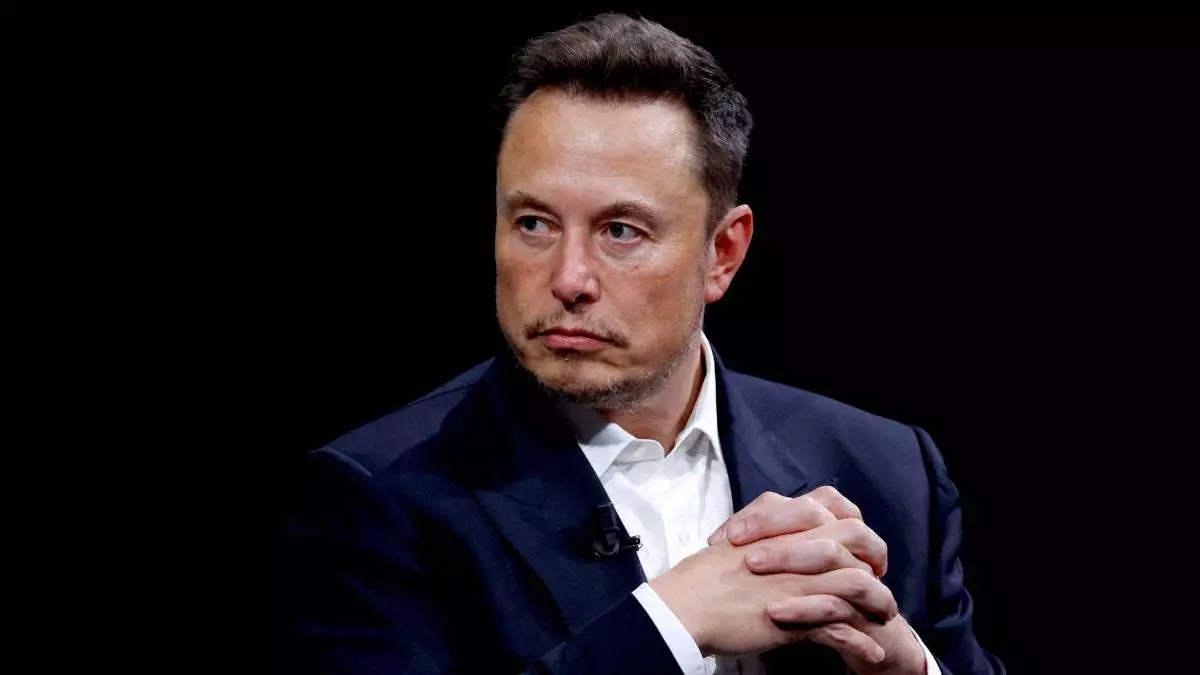Elon Musk, the billionaire entrepreneur whose ventures range from electric vehicles with Tesla to space exploration with SpaceX, is once again in the crosshairs of the U.S. Securities and Exchange Commission (SEC). This time, the SEC has announced its intentions to impose sanctions against Musk due to his failure to appear for a court-ordered testimony regarding his $44 billion acquisition of Twitter. This development raises several questions about corporate governance, transparency in financial disclosures, and the responsibilities of public figures.
The Context of the SEC’s Actions
The SEC’s decision to pursue sanctions stems from Musk’s notification that he would not attend his scheduled testimony, a mere three hours before it was set to occur on September 10. As highlighted in the SEC’s filing to the federal court in San Francisco, Musk was present at Cape Canaveral, Florida, overseeing a SpaceX launch at the same time as his court appearance. The SEC argues that Musk’s choice to prioritize the launch over his legal obligations indicates a disregard for the seriousness of the situation, calling it “gamesmanship.”
This situation is not simply a matter of a missed appointment; it represents a broader issue of accountability and respect for regulatory processes. The SEC’s criticism resonates not only as an enforcement action but also as a concern about how influential individuals perceive their responsibilities to regulatory bodies.
Musk’s defense, articulated by his attorney Alex Spiro, frames the situation as an overreach by the SEC. Spiro emphasized that allowing Musk to attend the launch was crucial for the safety of the astronauts involved and categorized his absence as the result of an unavoidable emergency, rather than willful defiance. He argued that rescheduling the testimony for October 3 should suffice and cautioned against dragging the matter into drastic sanctions that could be unwarranted.
However, this line of argument introduces questions about the interpretation of emergencies and the responsibilities of high-profile executives. When does an obligation to a regulatory body take precedence over other commitments? For a figure like Musk, balancing multiple high-stakes responsibilities is part of daily operations, but it also places him under meticulous scrutiny.
Musk is no stranger to regulatory scrutiny. Following previous encounters with the SEC, including a 2018 lawsuit over tweets claiming he had secured funding to take Tesla private, Musk has settled disputes and paid hefty fines. In that instance, a $20 million settlement led to increased oversight of his communications related to Tesla. Musk’s contentious relationship with the SEC raises troubling concerns about the implications of power and influence in corporate governance.
The SEC’s investigation centers on Musk’s acquisition of Twitter shares, where it is alleged that he failed to disclose his stake in the company within the regulatory timeframe mandated for shareholders reaching a 5% threshold. Musk eventually informed the public of a 9.2% stake, but the timing has drawn considerable criticism and scepticism from investors. Disclosures of this nature are designed to ensure transparency and protect investors, particularly in a market as volatile as tech.
Looking Ahead: The Oct. 3 Testimony
As the October 3 date for Musk’s rescheduled testimony approaches, anticipation looms. The SEC’s warning about the potential for future non-compliance exemplifies the tension between regulatory frameworks and individual business agendas, giving credence to the notion that Musk must navigate his commitments with greater caution. Should he fail to appear, the consequences could escalate, potentially leading to more severe penalties that threaten his business operations and personal credibility.
In the end, this unfolding saga illustrates a pivotal moment in the ongoing discourse about accountability and transparency in the venture capital and public company realms. Elon Musk, as a prominent figure in these sectors, embodies the complexities of leadership intertwined with regulatory expectations. The SEC’s pursuit of sanctions serves as a reminder that no individual, regardless of wealth or influence, is above the law. It remains to be seen whether Musk will uphold his commitments in the face of mounting pressure or if this will devolve into a continued legal tug-of-war that further complicates the intricate relationship between corporate power and government oversight.


Leave a Reply
You must be logged in to post a comment.